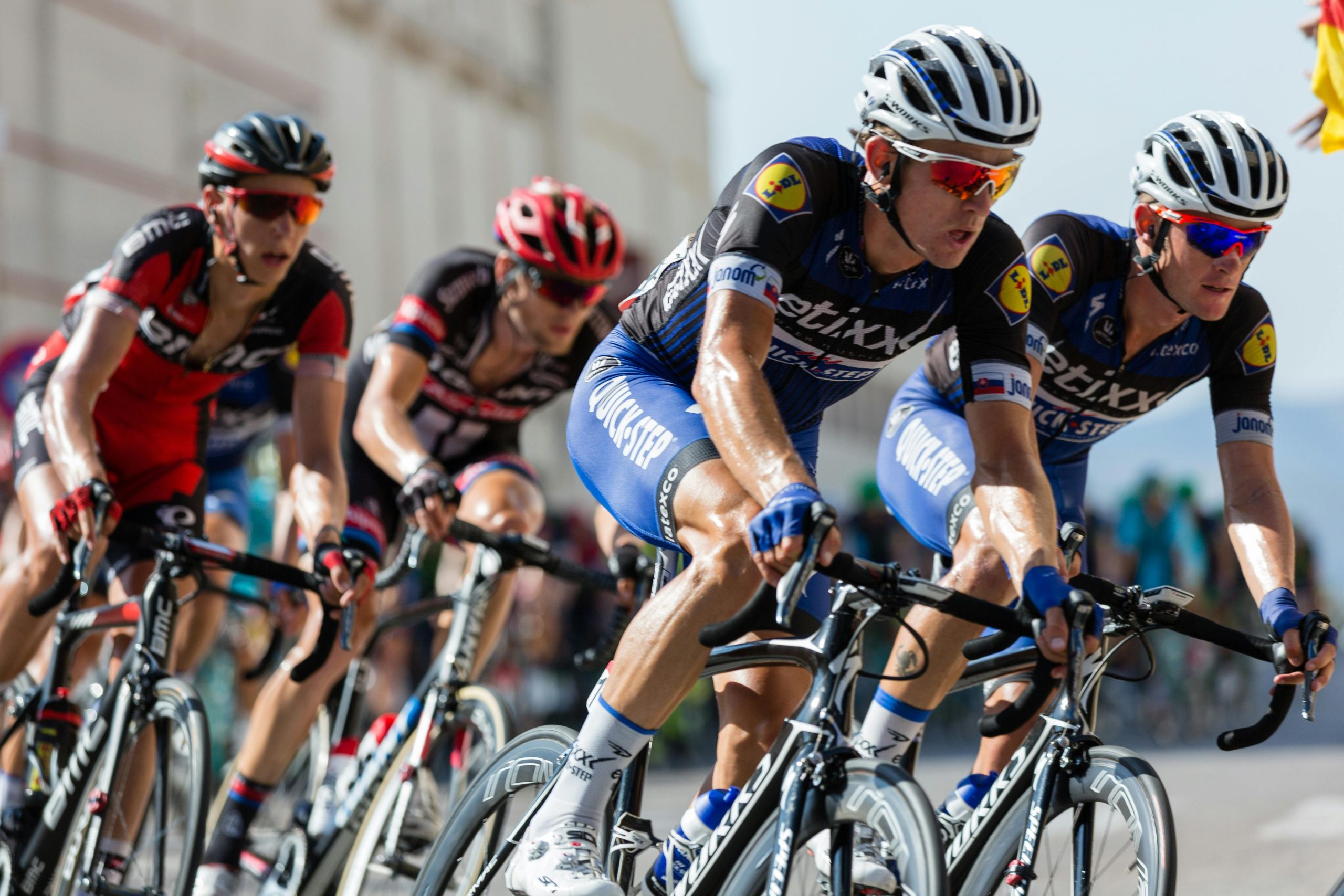How Can Precision Nutrition Enhance Endurance in Ultra-Distance Cyclists?

Ultra-distance cycling, an intense and gruelling sport, draws thousands of athletes around the globe each year. To excel in such demanding athletic events, cyclists need more than just rigorous training and mental strength. Proper nutrition plays a critical role in enhancing performance by providing the body with the necessary energy to maintain endurance and promote muscle recovery. This article delves into the concept of precision nutrition and its role in boosting performance in ultra-distance cycling.
The Science of Precision Nutrition
Precision nutrition embodies a revolutionary approach to sports nutrition. Instead of using generalised dietary recommendations, it tailors nutritional strategies to the distinct needs of each athlete, taking into account their genetics, metabolism, lifestyle, and training demands.
A lire également : What Are the Latest Advances in Minimally Invasive Surgery for Sports Hernia Repair?
Research on precision nutrition is rapidly expanding, becoming an integral part of sports science. Various studies published on Google Scholar and PubMed increasingly highlight the advantages of individualised nutrition plans for athletes. With this approach, cyclists can optimise energy intake, promote muscle recovery, and ultimately enhance performance and endurance.
Glycogen Stores and Energy Intake
One primary focus of precision nutrition in endurance sports is managing the body’s glycogen stores. Glycogen, a form of stored carbohydrate, is the body’s main source of energy during high-intensity exercise.
A lire également : What Is the Role of Omega-3 Supplements in Reducing Inflammation for Triathletes?
For ultra-distance cyclists, maintaining an adequate intake of carbohydrates before, during, and after training can significantly optimise glycogen stores and, in turn, enhance performance. Precision nutrition takes this a step further, determining the right balance and timing of carbohydrate intake tailored to each cyclist’s individual response to exercise and recovery.
A study found in the PubMed database showed that a high-carbohydrate diet increased the glycogen stores in an athlete’s body, leading to improved endurance during high-intensity exercise. Therefore, precision nutrition can help athletes find the optimal carbohydrate intake that will most effectively increase their glycogen stores.
Protein Intake and Muscle Recovery
Another element to keep in mind is the importance of protein in muscle recovery. Exercise, particularly intense and prolonged training such as in ultra-distance cycling, causes muscle damage and depletion of protein in the body.
To repair this damage and prepare for the next training session or racing event, athletes must consume enough protein. Precision nutrition helps determine the optimal amount and timing of protein intake that will best support muscle recovery.
According to a study indexed on Google Scholar, consuming high-quality protein immediately after exercise can significantly enhance muscle protein synthesis, speeding up recovery and promoting the building of new muscles.
Tailoring Nutrition to Training Demands
Every athlete’s training demands differ. Factors such as the duration, intensity, and type of training, as well as the athlete’s weight, age, and gender, all influence the body’s nutritional needs.
Precision nutrition recognises these differences, tailoring nutritional strategies to the specific demands of each athlete’s training regimen. For instance, cyclists undertaking long, intense training sessions may need to increase their carbohydrate and protein intake, while those focusing on endurance may require a different nutritional approach.
Monitoring and Adjusting Nutritional Strategies
Precision nutrition is not a one-off process but requires regular monitoring and adjusting. This can involve tracking your body’s responses to different nutrients, adjusting your diet based on changes in your training regime, or adapting to new findings in sports nutrition research.
The beauty of using sources such as PubMed or Google Scholar is that you can stay abreast of the latest research in your field. This will help you make informed decisions about your nutrition and training, ensuring that your approach is always based on the best available evidence.
Through precision nutrition, ultra-distance cyclists can decode their unique nutritional needs, fuelling their bodies optimally for peak performance and endurance. With the right approach, you can turn the arduous journey of ultra-distance cycling into a rewarding and fulfilling experience.
The Role of Fatty Acids and Amino Acids in Sustained Energy and Recovery
Beyond carbohydrates and proteins, precision nutrition also emphasizes the intake of fatty acids and amino acids for ultra-distance cyclists. Fatty acids, particularly omega-3s, are integral to athletes as they provide sustained energy and help reduce inflammation in the body.
Studies indexed on Google Scholar suggest that a balanced intake of omega-3 and omega-6 fatty acids can potentially improve athletic performance by enhancing heart rate and power output. As these fats are not naturally produced by the body, athletes must obtain them from their diet. Precision nutrition can help determine the right balance and sources of these fatty acids, tailored to an athlete’s specific dietary needs and tolerance.
Amino acids, on the other hand, are the building blocks of protein. They are crucial in muscle recovery and in preventing muscle breakdown during high-intensity exercise. Just like fatty acids, some amino acids are not produced by the body and must be obtained through the diet.
One particular amino acid, leucine, has been extensively researched for its role in promoting muscle protein synthesis. A free article available on PubMed Central (PMC) suggested that athletes might benefit from consuming leucine-rich foods post-exercise to enhance muscle recovery. Precision nutrition can guide athletes in optimising their intake of essential amino acids, thereby promoting muscle recovery and boosting overall performance.
The Impact of Long-Term Precision Nutrition on Athletic Performance
With the advancements in sports nutrition and the increasing popularity of precision nutrition, it’s clear that individualised nutrition plans play a pivotal role in enhancing athletic performance in the long term.
By taking into account an athlete’s unique metabolism, genetics, lifestyle, and training demands, precision nutrition provides a comprehensive and tailored approach to fueling the body optimally. It goes beyond general dietary recommendations, enabling athletes to meet their specific nutritional needs and recover more effectively post-exercise.
As per a study indexed on Google Scholar, long-term adherence to precision nutrition strategies resulted in significant improvements in power output, endurance, and recovery in athletes. Consequently, for ultra-distance cyclists, a bespoke nutrition plan could prove to be a game-changer.
Conclusion
In conclusion, precision nutrition offers a research-backed approach to enhancing endurance in ultra-distance cyclists. It meticulously considers multiple factors such as an athlete’s genetics, metabolism, lifestyle, training demands, and even their personal preferences, offering a truly individualised nutrition plan.
By focusing on the optimal intake of carbohydrates for energy, proteins for muscle recovery, fatty acids for sustained energy, and amino acids for muscle maintenance, precision nutrition ensures that cyclists are adequately fuelled for their rigorous training and competitions. Moreover, the constant monitoring and adjusting of dietary strategies further ensure that the nutrition plan remains effective and relevant.
Undoubtedly, precision nutrition, as substantiated by numerous studies available on platforms like PubMed and Google Scholar, can play a significant role in enhancing athletic performance, specifically in the realm of ultra-distance cycling. Remember, as an ultra-endurance athlete, your nutrition plan is just as important as your training plan. Ensure that you fuel and recover properly to reach your full potential.
